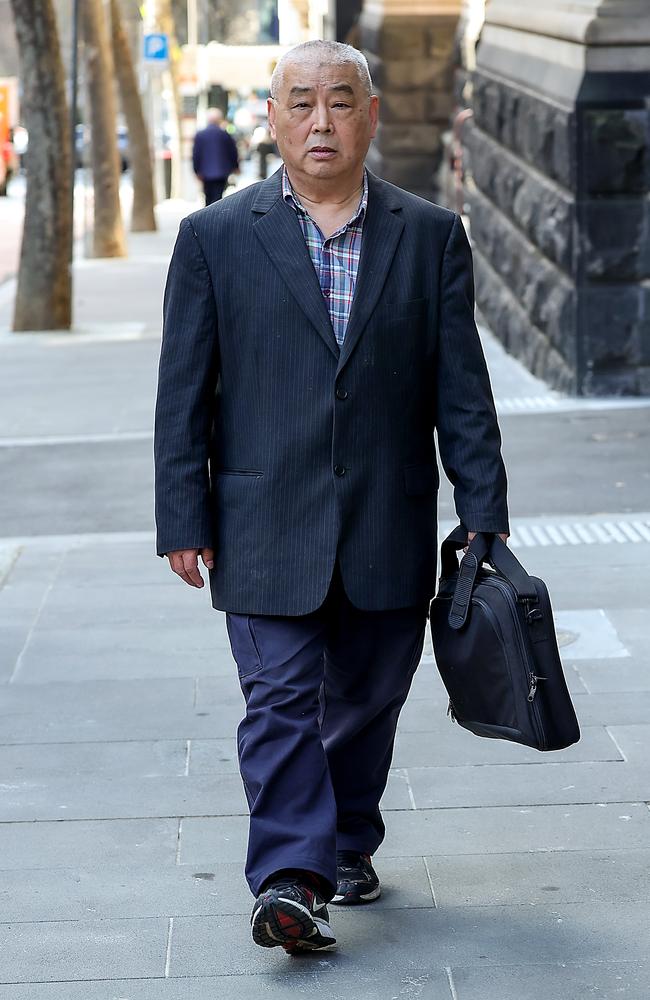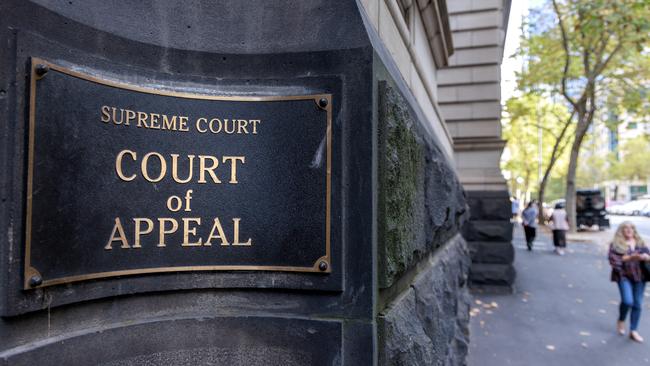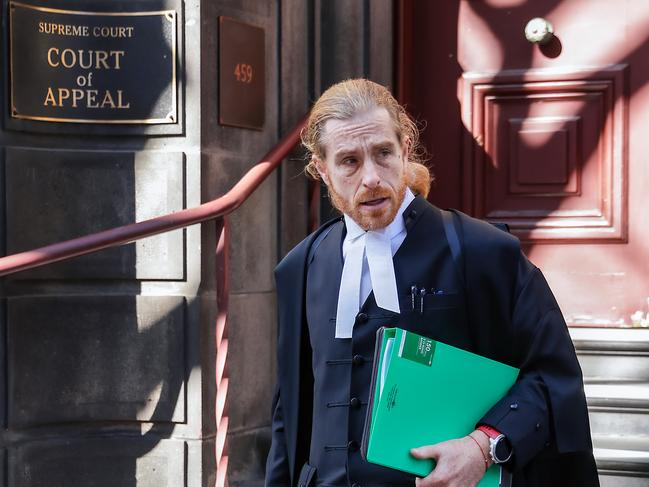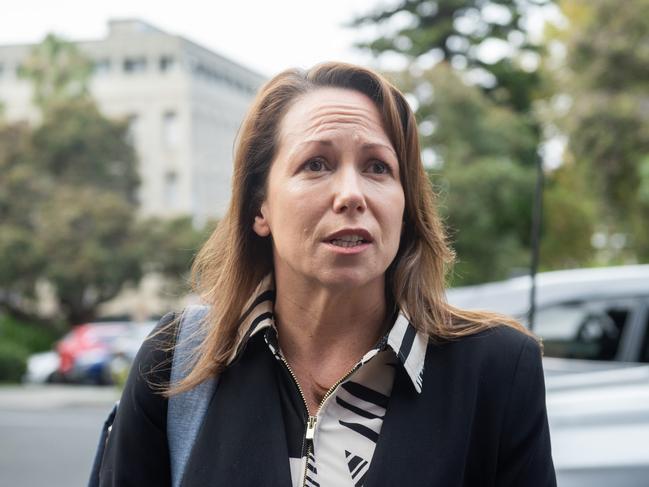‘I’m not evil’: Zhanyu Zhong, convicted of hiring undercover cop to kill wife, continues legal appeal odyssey
An Australian man convicted of hiring an undercover cop to kill his wife continues his legal appeal odyssey decades after being found guilty.

A Melbourne man convicted of hiring an undercover police officer to kill his wife 20 years ago has argued his human rights were infringed at trial as he petitions the highest courts to clear his name.
Zhanyu Zhong represented himself in the Melbourne Court of Appeal on Friday, arguing his conviction was unconstitutional and the state Attorney-General made a mistake in denying his latest petition for mercy.
“My daughter needs two parents. If I get my wife killed, the person who most suffers is my daughter,” Zhong said in court.
“I’m not evil or a devil.”

For decades Zhong has pursued legal challenges to overturn his conviction for incitement to murder his estranged wife Rong Qua Maio in 2000. The couple had a daughter, were separated, and in 2001 a jury found him guilty of hiring an undercover police operative, going by the alias Mark James, to murder Ms Maio.
Zhong spent more than three years in prison and got parole in 2004.
“That’s something like imagination. I did not make a request to Mark that he should kill (Ms Maio),” Zhong told the Court of Appeal justices on Friday.
The court has reserved its decision.

Zhong is questioning Attorney-General Jaclyn Symes’ decision to reject his latest petition for mercy and the right to appeal to a higher court once more.
Four central points form Zhong’s arguments.
Firstly, the jurors who found him guilty did not have to unanimously, and secondly definitely, find if and when he gave Mark a “green light” to carry out the hit.
Zhong claims the “incompetent” police and courts treated him with bias, and lastly he alleges he has fresh and compelling evidence.
The courts have already disagreed with him about that evidence’s worth though.
Arguing his case for more than 90 minutes to the three justices, Zhong said his wife became angry after discussing a family matter.

The pair were separated at the time. One day when Zhong went to collect his daughter for his allotted 24 hours with her, Ms Maio slapped him, he told the court, and when he went to make a police complaint officers were not helpful.
From there, he came to be introduced to the undercover officer who “pressured” Zhong, he told the court.
Zhong claimed that when he tried to get away from “Mark” the officer threatened him, and Zhong was subsequently arrested and charged with ordering a hit on his wife.
“I ask the question, how can a commission to murder be made with no green light? I’ve been asking that question for 20 years,” Zhong said in court on Friday.

He argued his constitutional and human rights were infringed by an unlawful trial, and the Attorney-General should have used her discretion to allow him to challenge the conviction in the Court of Appeal.
Lawyer for the Attorney-General of Victoria, Liam Brown SC, said the Attorney-General did carefully consider the petition for mercy.
“The Attorney-General concluded the material in the petition did not raise a reasonable possibility the Court of Appeal would allow an appeal,” Mr Brown said.
Zhong had demonstrated no errors in the Attorney-General’s decision, Mr Brown said, nor any errors in the last appeal judge’s rejection of Zhong’s petitions.
In response, Zhong said covert recordings between he and Mark presented at the trial were obtained via pressure from the officer and were inadmissable.
“No possible commission of murder was incited,” Zhong said in response to Mr Brown.
The court reserved its decision on Zhong’s applications and gave no definitive timeline for a result.

